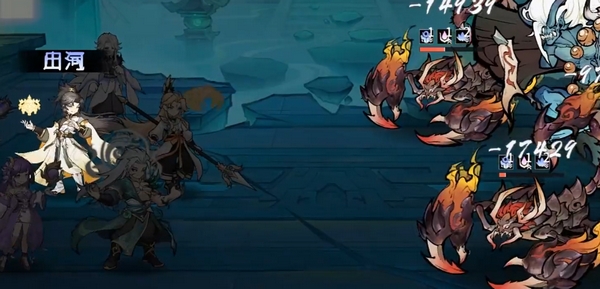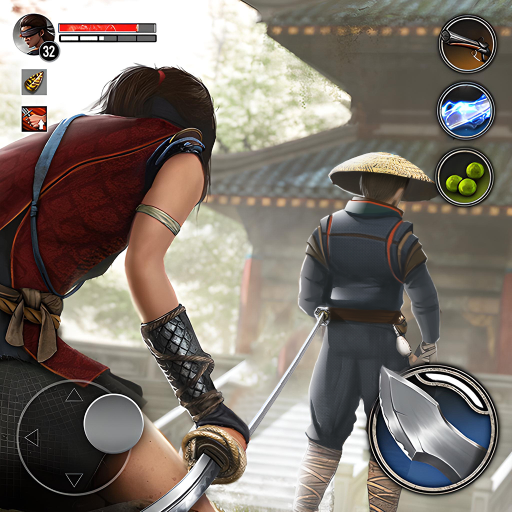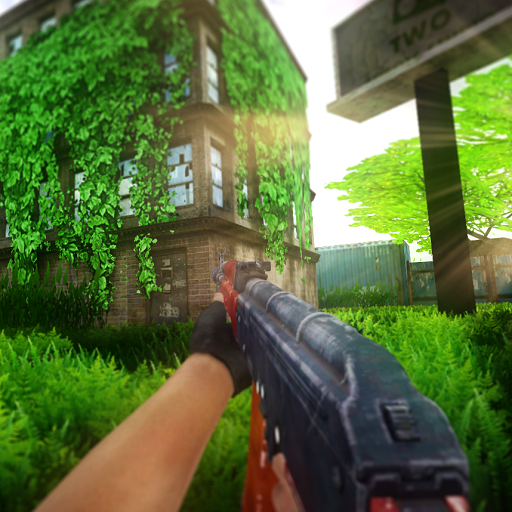
GWENT: The Witcher Card Game
Game Introduction
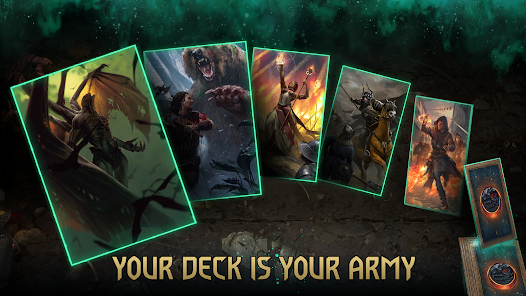
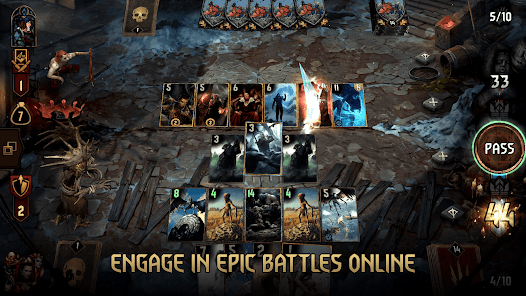
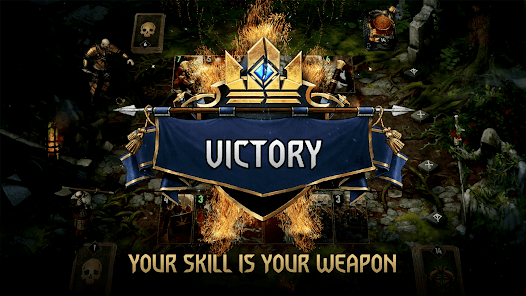
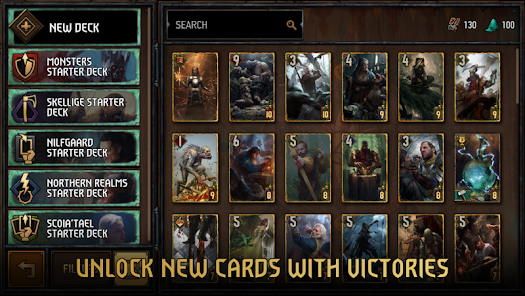
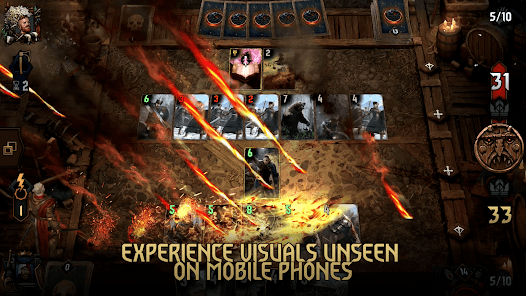
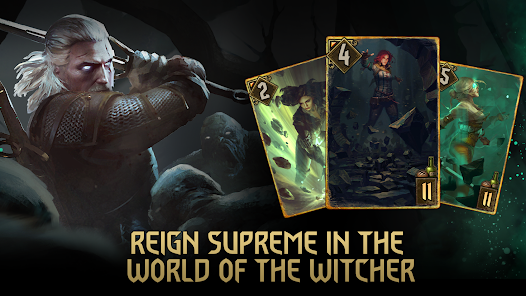
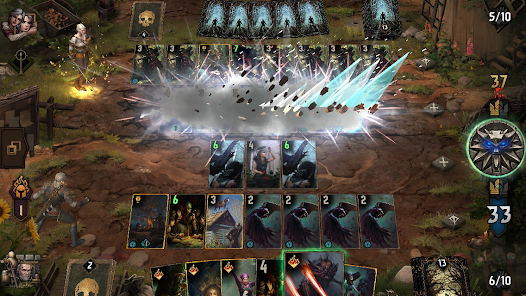
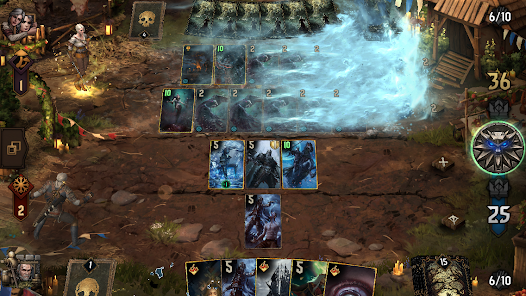
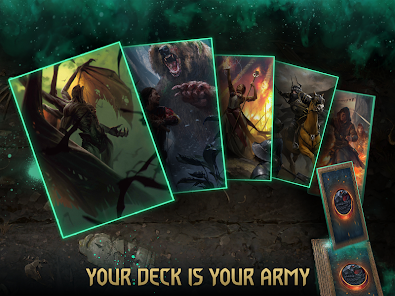
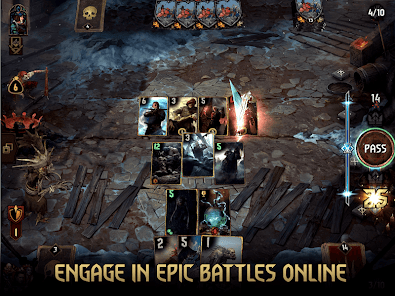

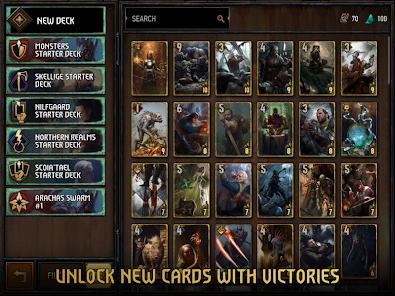
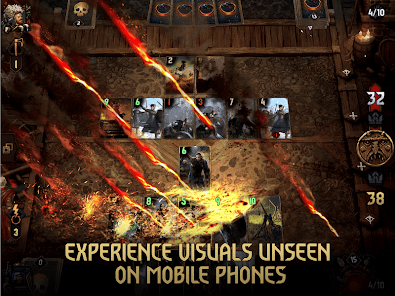
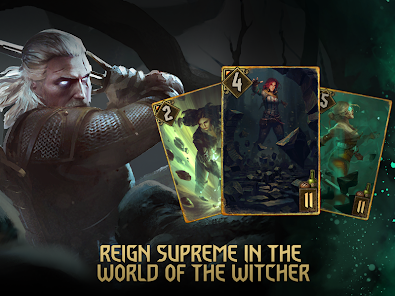


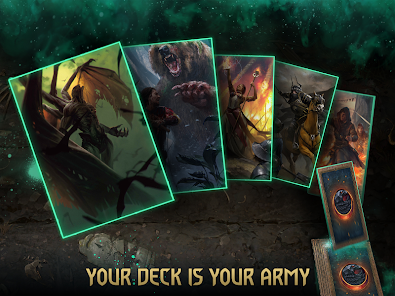
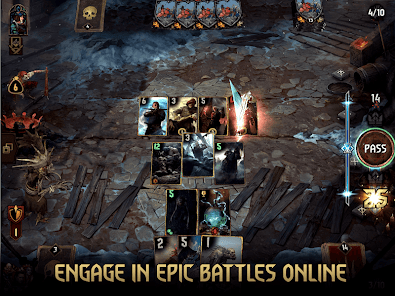

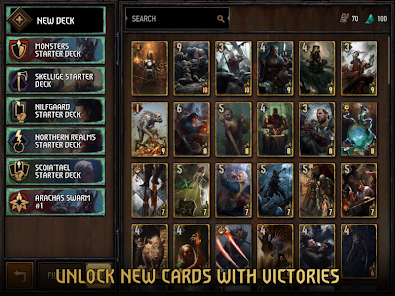
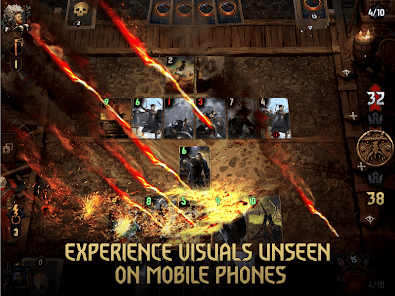
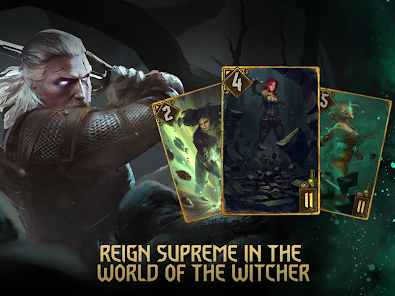
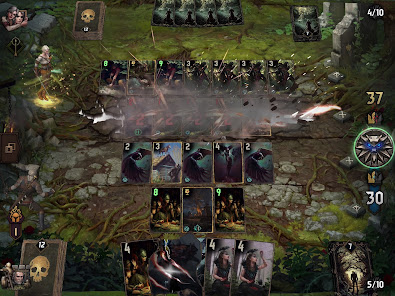
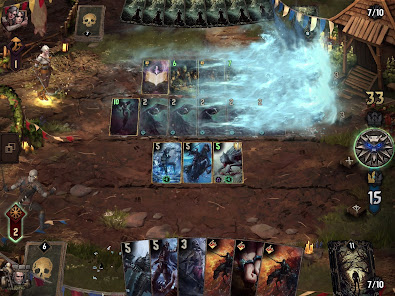


Hot Strategy
Is Douluo Continent Soul Hunting World a card game? What type of game is Douluo Continent Soul Hunting World?
Gameplay types are diverse, with card games being the most numerous among them. So, is Douluo Continent: Soul World a card game? What type of game is it? In fact, Soul World is not a traditional card game; it's an MMO mobile game centered around a 3D world. Although there are mechanisms similar to "collecting martial souls" in the game, its core gameplay goes far beyond numerical comparisons like in card games, instead emphasizing character development, action combat, and free exploration.
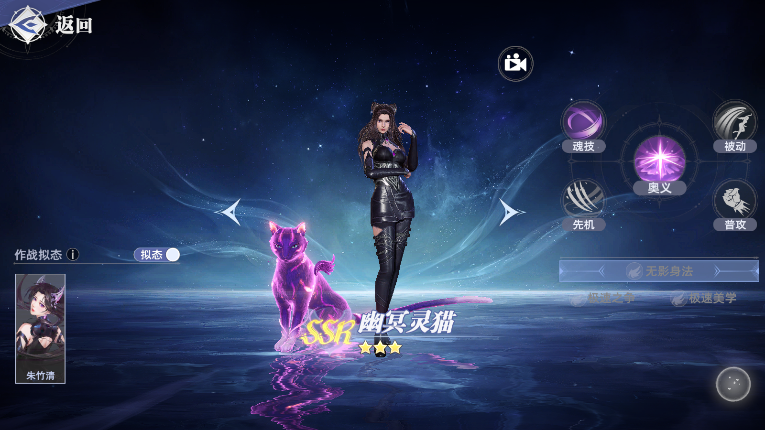
【Douluo Continent: Soul World】Latest Version Reservation/Download
》》》》》#Douluo Continent: Soul World#《《《《《
In the game, everyone will enter the continent as a "Soul Master," growing and challenging strong enemies through hunting soul beasts, obtaining soul rings, and awakening martial souls. Strictly speaking, it is a 3D large-world role-playing game that combines multidimensional gameplay. It features a seamless map design, allowing players to freely travel between locations such as Noding City and Starlight Forest.
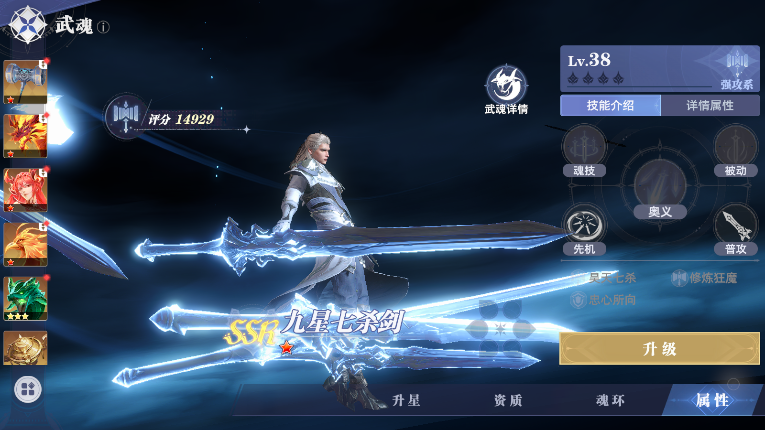
Different from the "tap-tap-tap" of card games, this game adopts real-time combat mechanics, where players can freely move, dodge, and release soul skills during battles, and switch between different martial souls. The combat system introduces various class positions for martial souls, including strong attack, agile attack, control, and support, each with its unique skill mechanisms and soul skill combinations.
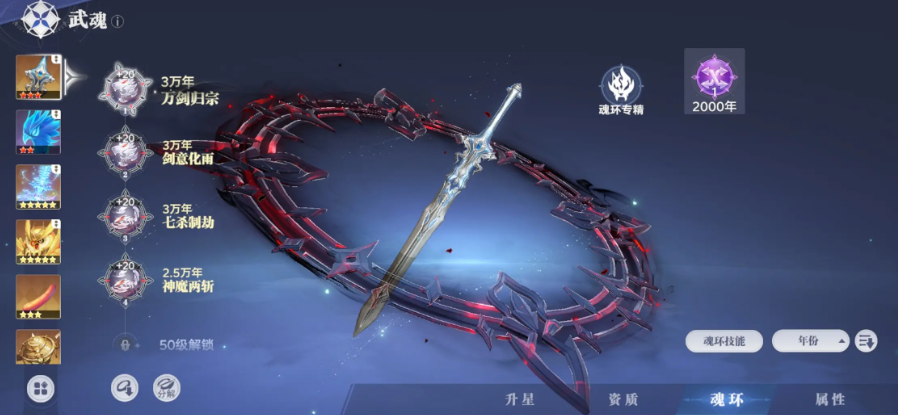
The "soul ring and soul bone system" is also a highlight that distinguishes it from card games. Soul rings are obtained by hunting soul beasts, while soul bones provide additional attributes and skill enhancements. This growth system, which is closely tied to battle outcomes, makes every adventure full of anticipation and positive feedback.
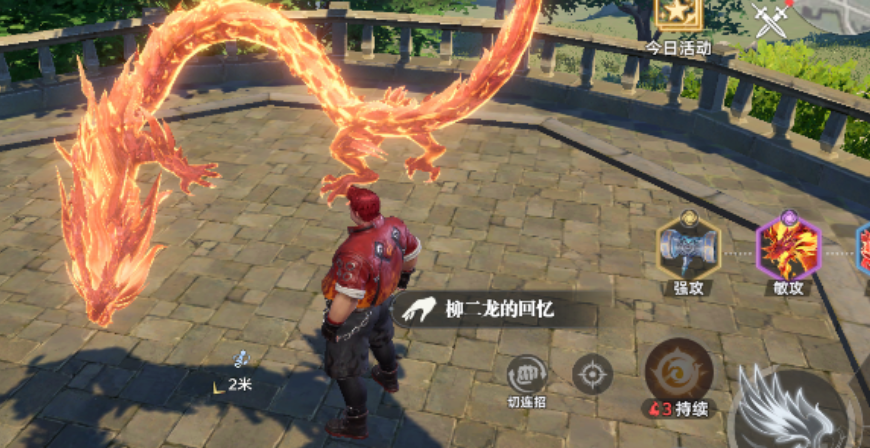
As an MMO, it naturally has a social system where players can join sects, form teams to challenge bosses, participate in cross-server arenas, and even engage in PvP duels with friends. Compared to static card battle gameplay, this real-time interaction and cooperation mechanism makes the game more vibrant and enjoyable.
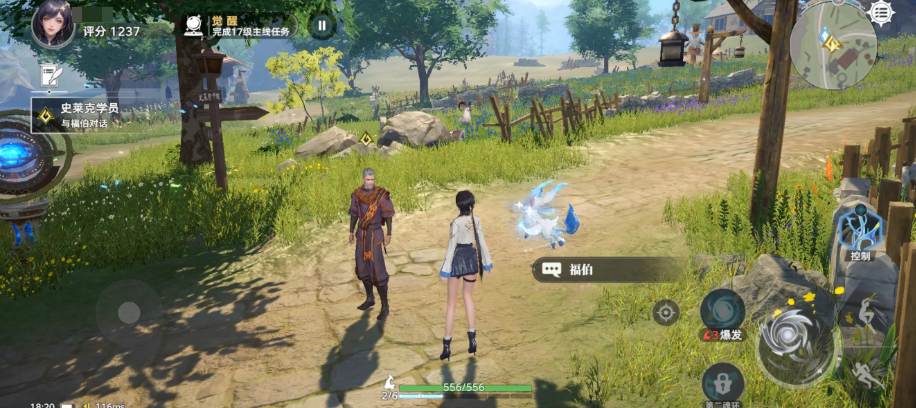
Regarding the question of whether Douluo Continent: Soul World is a card game, the answer should be clear by now. It is a 3D action MMORPG that emphasizes operational feel, exploration, and tactical combinations, rather than a card game. It focuses on the growth of Soul Masters, the evolution of soul rings, and the hunting of soul beasts, making it an open-world action game with a strong sense of operation.
What type of game is Expedition Legend? Is Expedition Legend a card game?
Since the popularity of Expedition Legend has been on the rise, some players who enjoy Warcraft games have become interested in it. When players go to learn about this game, they also want to know what type of game Expedition Legend is. After all, there is very little information available about the game. Many players only know that it is a game incorporating Warcraft elements, but they are not clear about the game type. Below, I will inform the players about the game type.

The latest download reservation address for "Expedition Legend":
》》》》》#Expedition Legend#《《《《《
Expedition Legend is a vertical Western fantasy card game. Here, players can summon ancient heroes, build their own card army, and the battle with monsters is about to begin.
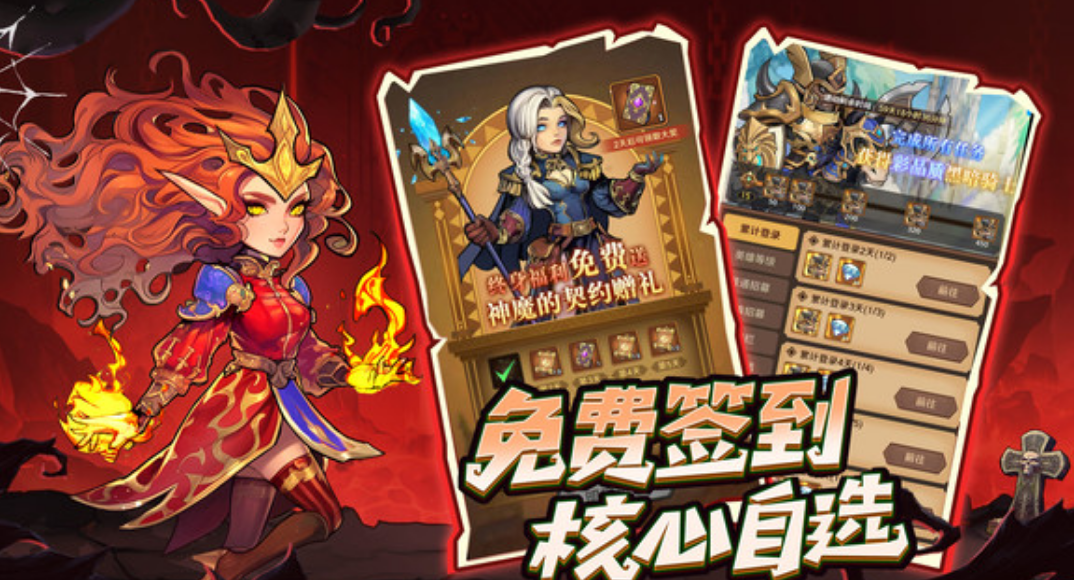
The game adopts a European and American style visual design. The addition of magical elements and a retro dark art style presents a visually stunning European and American masterpiece to the players. The authentic visual design will take you into an epic-level fantasy world. In this world, you will transform into a brave adventurer in a world coexisting with monsters, engaging in intense battles with them.
Expedition Legend has prepared hundreds of heroes for players to draw. At the beginning of the game, you will be given thousands of free draws, allowing you to collect all the heroes. Here, you can customize your own warriors, and the development of all heroes is entirely up to the player's discretion, allowing you to freely write your own legendary journey.

The game designs multiple races for players, including humans, undead, beasts, and demons. You can freely choose different races to form a powerful battle lineup. The relationship of the classic tank, damage dealer, and healer triangle, combined with racial bonds, allows you to strategize effectively in various intense battle modes, using wisdom to construct a lineup capable of competing for victory.
Many classic challenge modes allow players to feel the long-missed passion brought by classic gameplay while also experiencing the full challenge of new gameplay.
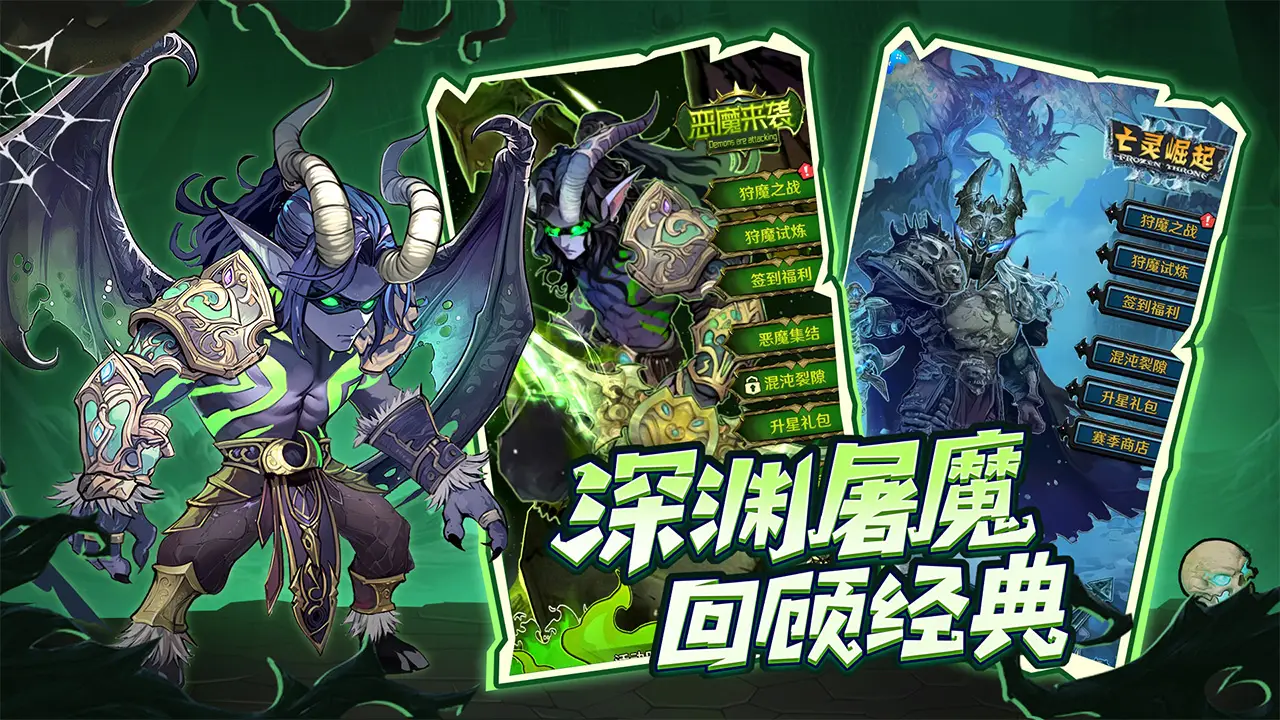
For those still unclear about what type of game Expedition Legend is, after reading this detailed introduction to the game type and gameplay, hurry up and join the game. The download link for the game is at the top of the content. Go ahead and download to join in.
Is Dushuai Fun? A Review of the New Card Game Dushuai
In the vast and long history of the Three Kingdoms, countless heroes, valiant men, and wise strategists have made their appearances, with their legendary stories providing an inexhaustible source of inspiration for various game creations. As a new player, the biggest question is whether Duoshuai (Seize the Commander) is fun. This card game, which takes the Three Kingdoms as its theme, ingeniously blends that grand and turbulent history with strategic card gameplay, offering players a unique gaming experience.
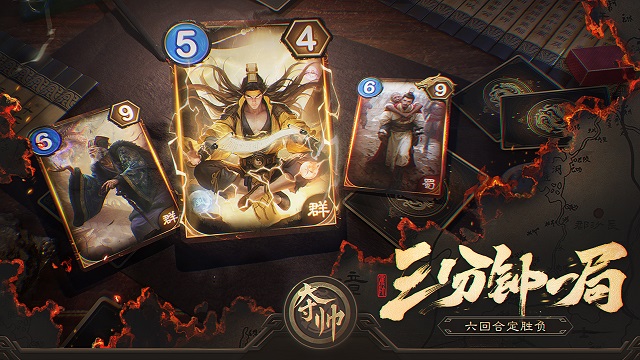
The generals of the Unrivaled in the Three Kingdoms must be unparalleled warriors in 1v1 duels, like Lü Bu among people and Red Hare among horses. So, a true man must engage in 1v1 battles, and the core gameplay mode of Seize the Commander is indeed 1v1. Use the cards in your hand to fight 1v1 on the card battlefield, with a touch of your fingertips, aiming for victory, defeating your opponent to earn more game points to achieve the ultimate triumph. Here, you can also showcase your strategic prowess like Zhuge Liang! Amidst laughter and conversation, powerful enemies turn to ashes.
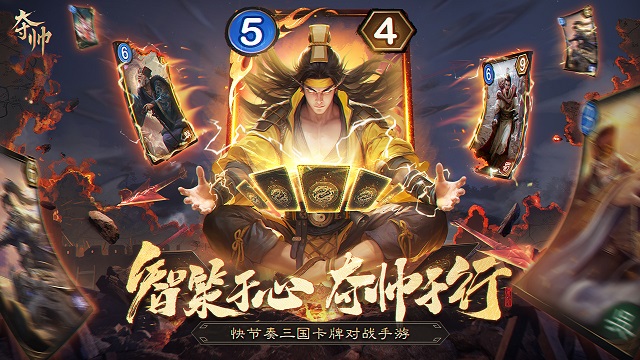
The second highlight of Seize the Commander is the short single-round game time, only 3 minutes, greatly reducing player fatigue. Adrenaline surges in these 3 minutes, winning the battle and instantly releasing the stress and pressure of the day. If this round fails, it's no problem; the game uses a 6-round win determination, so just win the next one. This game rhythm is suitable for leisurely play and doesn't worry about missing your stop on the subway or bus, as one round is just one stop. Play anytime, anywhere, and enjoy the fun!
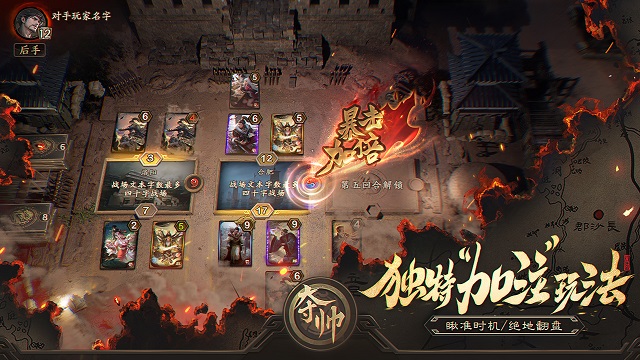
In the ever-changing and unpredictable battles, players can choose to bet at critical moments, triggering a critical hit mechanism. Winning can instantly turn the tide, while losing means total defeat. When strategy and courage resonate, the gains will multiply, and with a snap of the fingers, the enemy army turns to ashes. Such a risky path to victory is akin to a desperate all-or-nothing charge, capable of reversing a losing situation with swift and thunderous force, and harvesting the entire battlefield like a dragon stirring up waves. This heroic and tragic method makes every all-in bet a key move to rewrite the fate! The destiny of the Han Dynasty lies in this moment, where players become Zhuge Liang, Sima Yi, Zhou Gongjin...
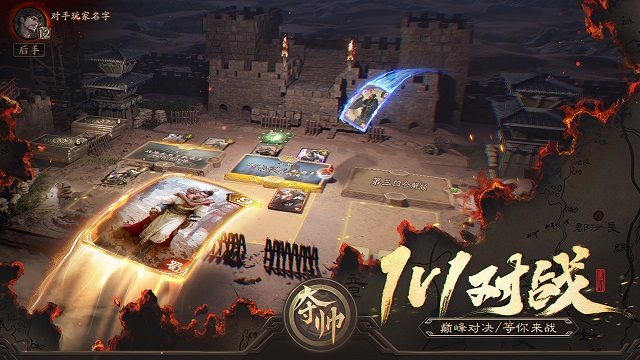
What card game players dread most is the gap in card strength. Without powerful cards, how can one restore the Han Dynasty? In Seize the Commander, all cards can be unlocked and experienced for free, with hundreds of Three Kingdoms warrior and strategy cards at your disposal. You can freely select from the vast card pool to build your own exclusive battle formation. The Five Tiger Generals, the Five Sons of Goodness, and the Four Pillars of Hebei are the most capable under your command. Let Guan Yu's Green Dragon Crescent Blade dance with Zhuge Kongming's Eight Trigram Formation, and let Zhao Zilong's Valiant Silver Spear resonate with Huang Yueying's Mechanism Techniques. Skillfully linking the sharp combat power of each warrior card with the cunning strategies of special cards, every combination of cards is a meticulous simulation of the battlefield situation. Only by deeply understanding the balance of civil and military arts can one wield power and sing the song of victory with unique and cunning strategies in the ever-changing battlefield.
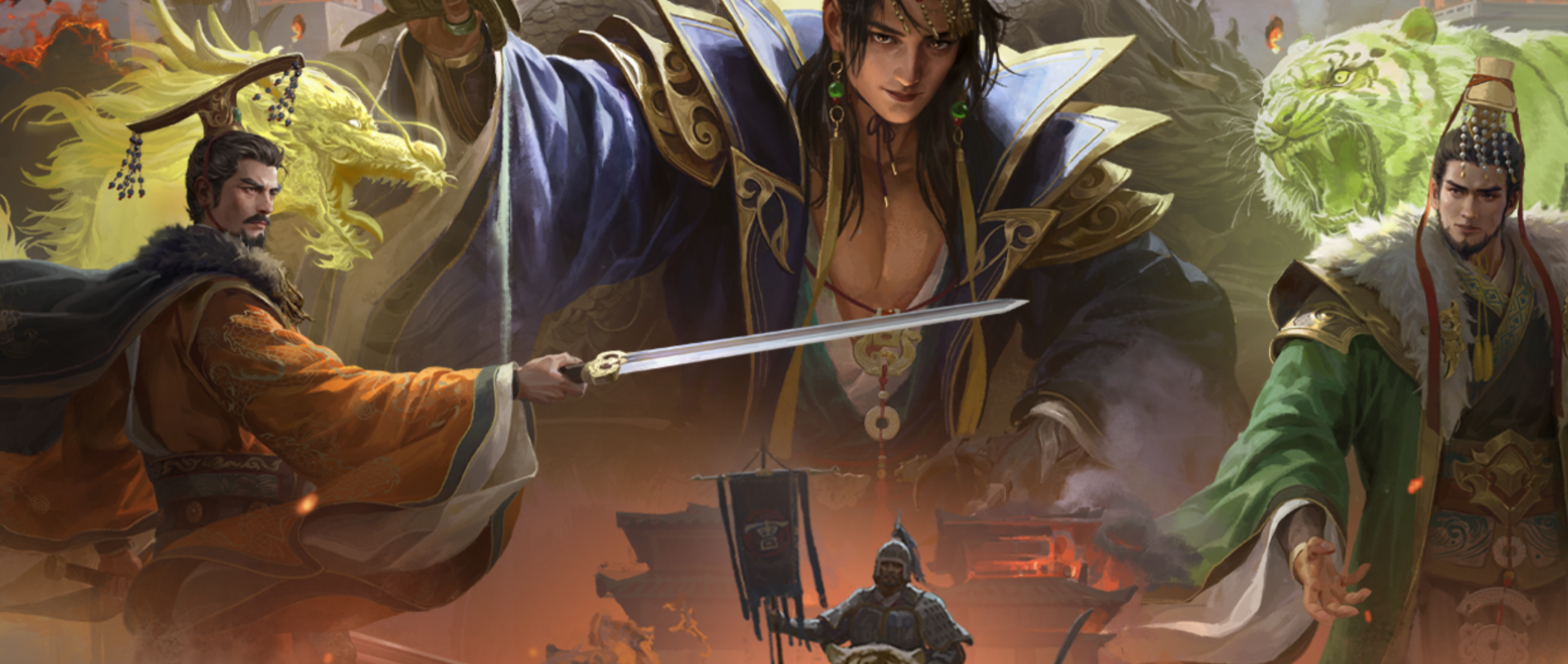
After this introduction, players should no longer be confused about whether Seize the Commander is fun. The epic and grand history of the Three Kingdoms will unfold before your eyes, with the smoke of war rising, troops moving, and drums beating, all decided by a single card. Players, please transform into Zhuge Liang and dive into the card battles of the chaotic Three Kingdoms era.
The public beta time for the new card game "Duo Shuai" and when it will be released
In the brilliant galaxy of the Three Kingdoms history, heroes emerged in succession. Their legendary stories are like an endless source of inspiration, nourishing countless game works. As a uniquely crafted card game with a Three Kingdoms theme, the public test time of Duel Commander has always been highly anticipated. So, when will the new card game, Duel Commander, be released? It has not been announced yet, and players will have to wait a little longer.
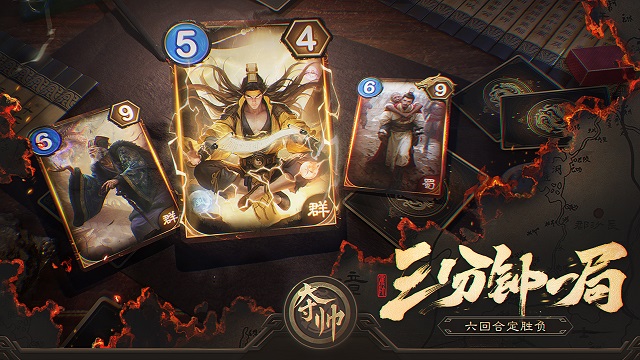
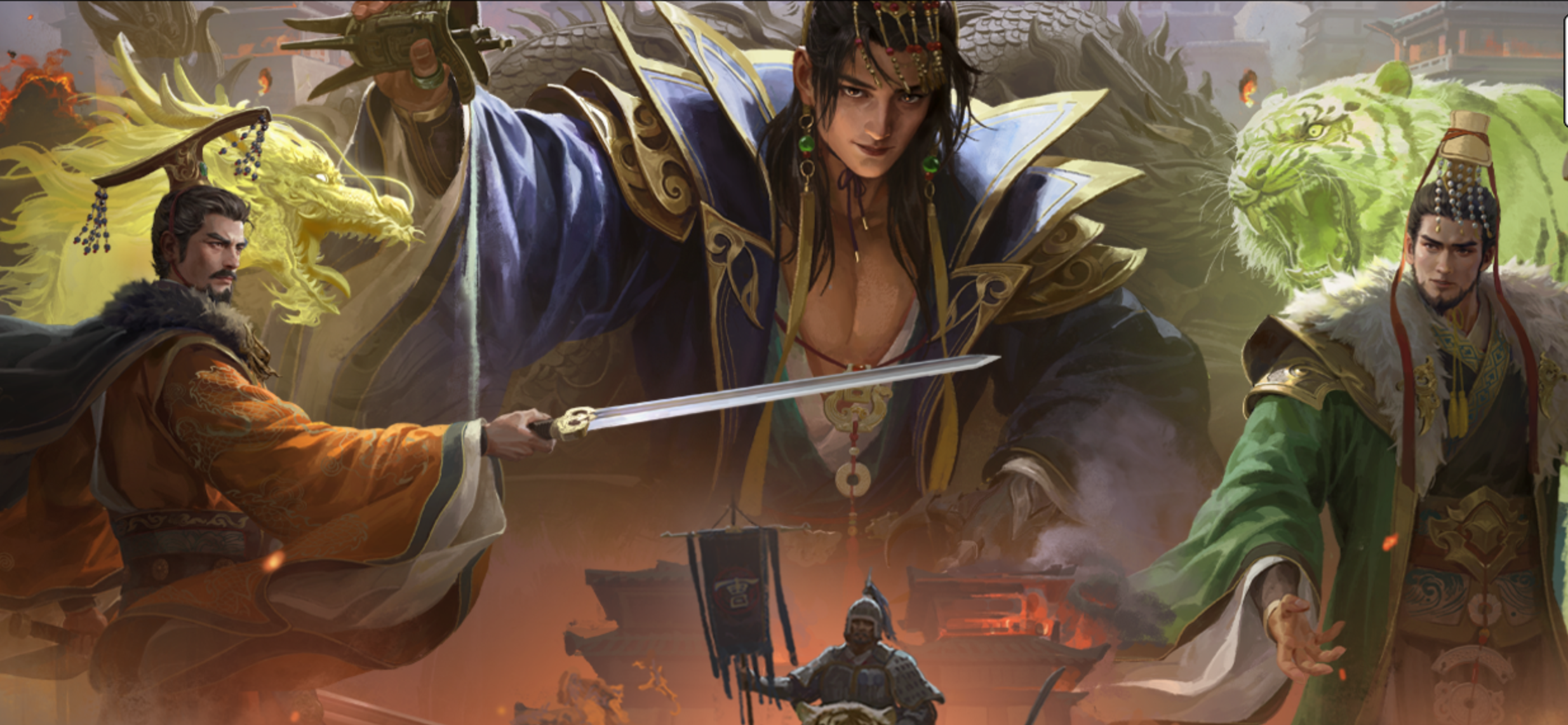
In the legends of the Three Kingdoms, Lü Bu's reputation as "the best among men, Red Hare among horses" resounded through the clouds. Every peerless general was the pinnacle of 1V1 duels. Duel Commander deeply understands this passion and heroism, setting 1V1 battles as the core gameplay mode. Stepping into the card battlefield, players can plan strategies with a light tap of their fingers. The placement of each card could become the key to victory, defeating opponents, accumulating points, and charging towards ultimate triumph. Here, you don't need a feather fan and silk scarf to be as wise as Zhuge Liang, breaking down the enemy's offensive with a smile, and deciding victories from afar.
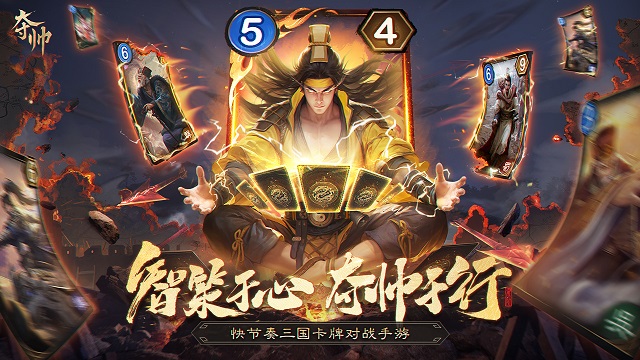
Another eye-catching feature of the game is its ultra-short round duration of just 3 minutes. This fast-paced rhythm not only significantly reduces gaming fatigue but also allows players' adrenaline to surge within those 3 minutes. Whether it's during a break at work or on the way home by subway or bus, one game fits perfectly into a single stop, making it easy to play anytime, anywhere. The joy of victory can instantly dispel the fatigue and stress of the day; even if there's an occasional loss, there's no need to be discouraged. With 6 rounds to decide the outcome, the next game offers a chance to regroup and start anew!
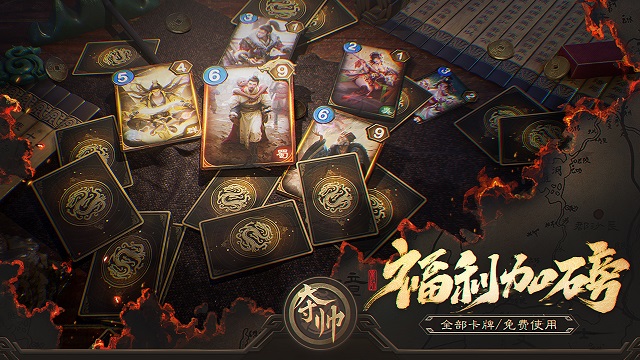
The battles in Duel Commander are filled with thrilling drama. At critical moments when the situation is changing rapidly, players can choose to increase their bets, triggering an exciting critical hit mechanism. This is a game of courage and strategy; success can instantly turn the tide, while failure means total defeat. Every decision is as thrilling as a breakout by a hundred cavalry, yet it can also bring the exhilarating satisfaction of harvesting the entire field like a dragon rolling over waves. When strategy and courage resonate perfectly, the rewards will multiply, and every all-in bet may become the key to turning the tide of battle.
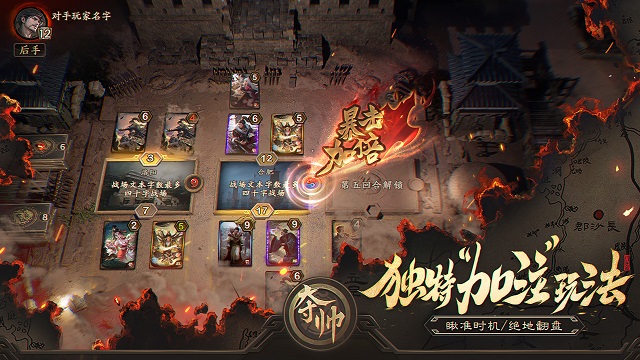
In terms of deck building, Duel Commander is full of sincerity. All cards can be unlocked and experienced for free, with a vast pool of hundreds of Three Kingdoms generals and strategy cards available for players to freely select. You can build your own unique battle formation, letting the bravery of the Five Tiger Generals, the wisdom of the Five Virtuous Generals, and the might of the Four Pillars of Hebei become your capable warriors. Guan Yu's Crescent Blade and Zhuge Liang's Eight Trigram Formation complement each other, while Zhang Fei's roar and Huang Yueying's mechanical skills shine together. The powerful combat abilities of the general cards and the cunning strategies of the trick cards are cleverly linked, and every combination of cards is a meticulous simulation of the battlefield situation. Only by mastering the balance between civil and military strategies can one navigate the treacherous tides of battle, using a unique deck to open the door to victory.
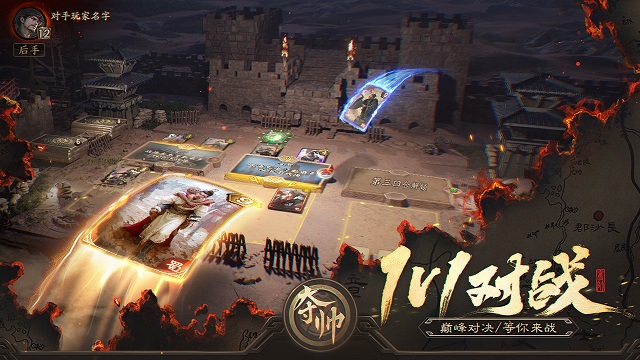
As the smoke of war rises, the troops move, and the drums beat. In the world of Duel Commander, a single card can determine victory and conquer the world. Players, quickly transform into the incomparably wise Zhuge Liang, or the strategically-minded Sima Yi or Zhou Gongjin, and throw yourself into this boiling Three Kingdoms card battlefield, writing your own legendary chapter! The download link for the game is provided in advance. Players can follow 9Games, and once the public test time for Duel Commander is announced, the editor will inform everyone immediately.
What's in the KARDS Summer Major Update? An Overview of the KARDS Summer Sea Battle Version Content
This is a game set against the backdrop of World War II, where players choose their main and allied countries (such as Italy, France) from among the five major powers: Britain, America, Japan, Germany, and the Soviet Union. The card designs are based on real historical events and forces, such as the German "Blitzkrieg" card and the Soviet "T-34" tank unit. What does this summer's big update for the card game KARDS include? Many players want to know, so this article will provide a detailed introduction. Let's take a look.

【biubiu Accelerator】Latest Version Download
》》》》》#biubiu Accelerator#《《《《《
I. The core content of this update includes new cards and a rotation system
The summer expansion adds 87 new cards, focusing on the naval unit subcategory (such as warships, submarines), strengthening the naval warfare theme strategy. A card pool rotation mechanism is also introduced: 107 active cards are moved to the reserve card pool, and 20 historical cards return to active status, to maintain environmental balance. After the rotation, only about 800 active cards can be used in ranked matches, while reserve cards are limited to friend battles or special modes that may open in the future.
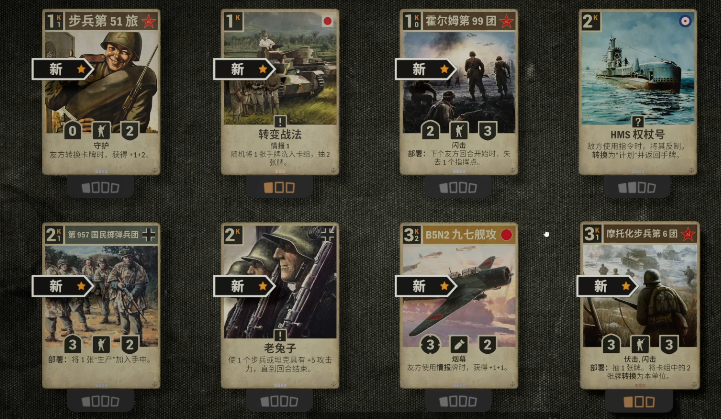
In addition, the following new game mechanics have been added:
1. Conversion Mechanism: Hand or field units can be converted into three types of new cards:
Production (0-cost command, gain 1 command point)
Routed Troops (nationality-less 1/1 unit)
Plan (2-cost command, draw 1 card)
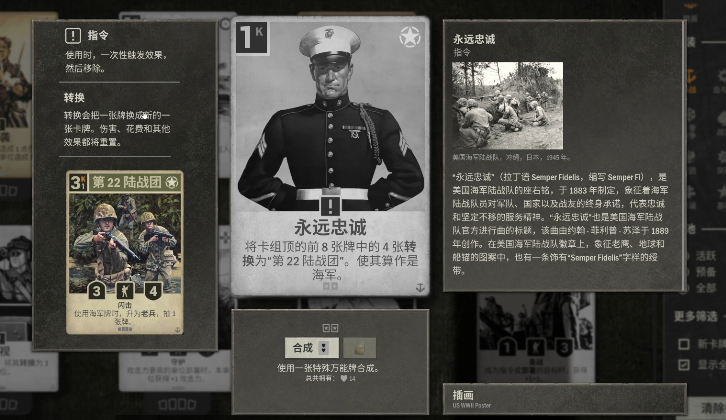
This mechanism increases randomness and strategic depth but may affect the battle situation due to uncontrollable conversion results.
2. Dynamic Value Display: Some card effects change in real-time with the number of turns or battlefield events (such as dynamic attack power bonuses for units), increasing the need for tactical foresight.
II. System and Interface Optimization
Personal Profile System
Achievement medal and ribbon system has been added. Players can unlock display rewards by completing specific goals (such as PVP victories, deck collection). Medals are divided into levels like "Rookie" and "Strategic Master," while ribbons reflect officer rank and service tenure.
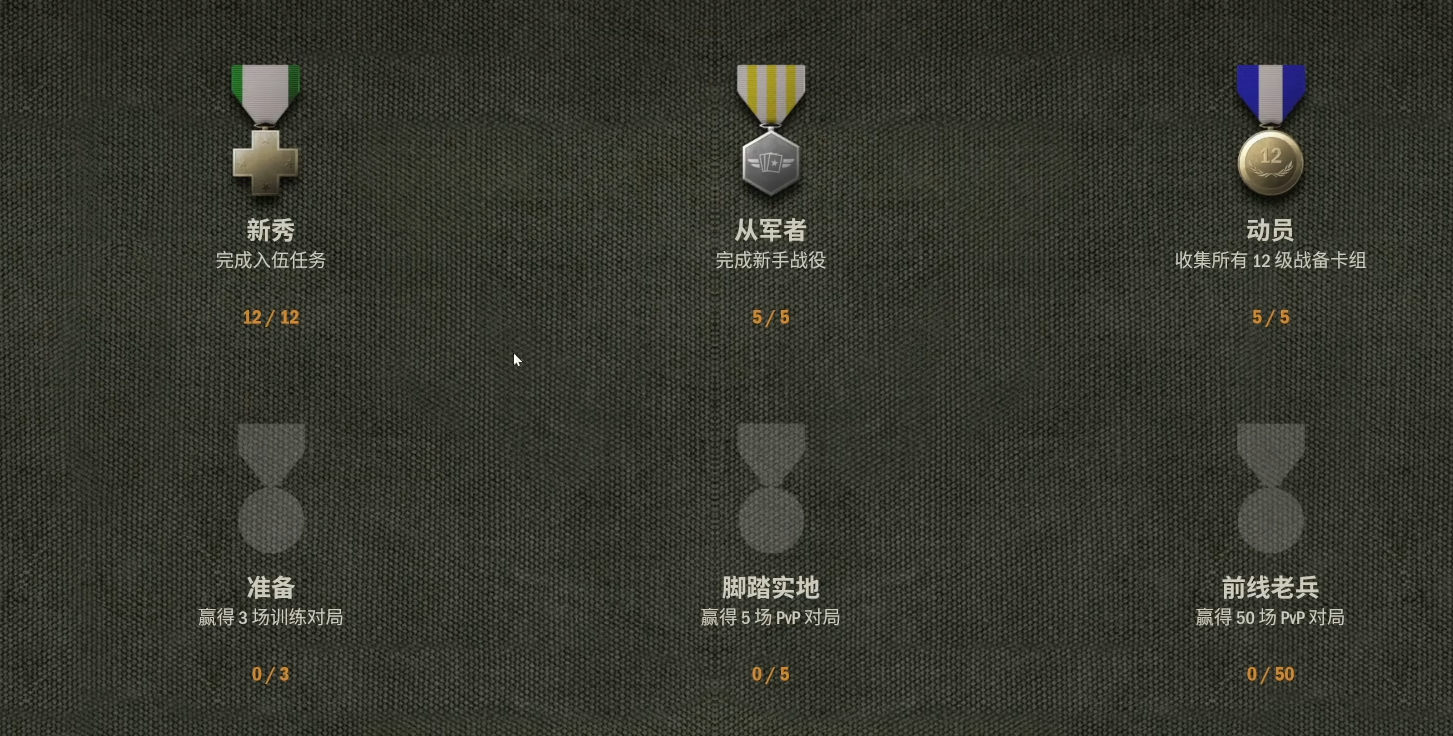
UI Visual Redesign
The main interface now uses an industrial steel plate design, echoing the themes of naval docks and oil platforms. Naval-specific emblems have been added to card displays, and the layout of card information has been optimized to reduce reading comprehension costs.
Card Pack Acquisition Adjustment
Log in to receive 2 card packs, and claim 2 free card packs from the store (including guaranteed bronze cards). A new core card pack integrates old expansion content, lowering the collection threshold for new players. Free deck resources: Complete beginner tasks to receive a US starter deck (including practical units like the 507th Parachute Infantry Regiment).
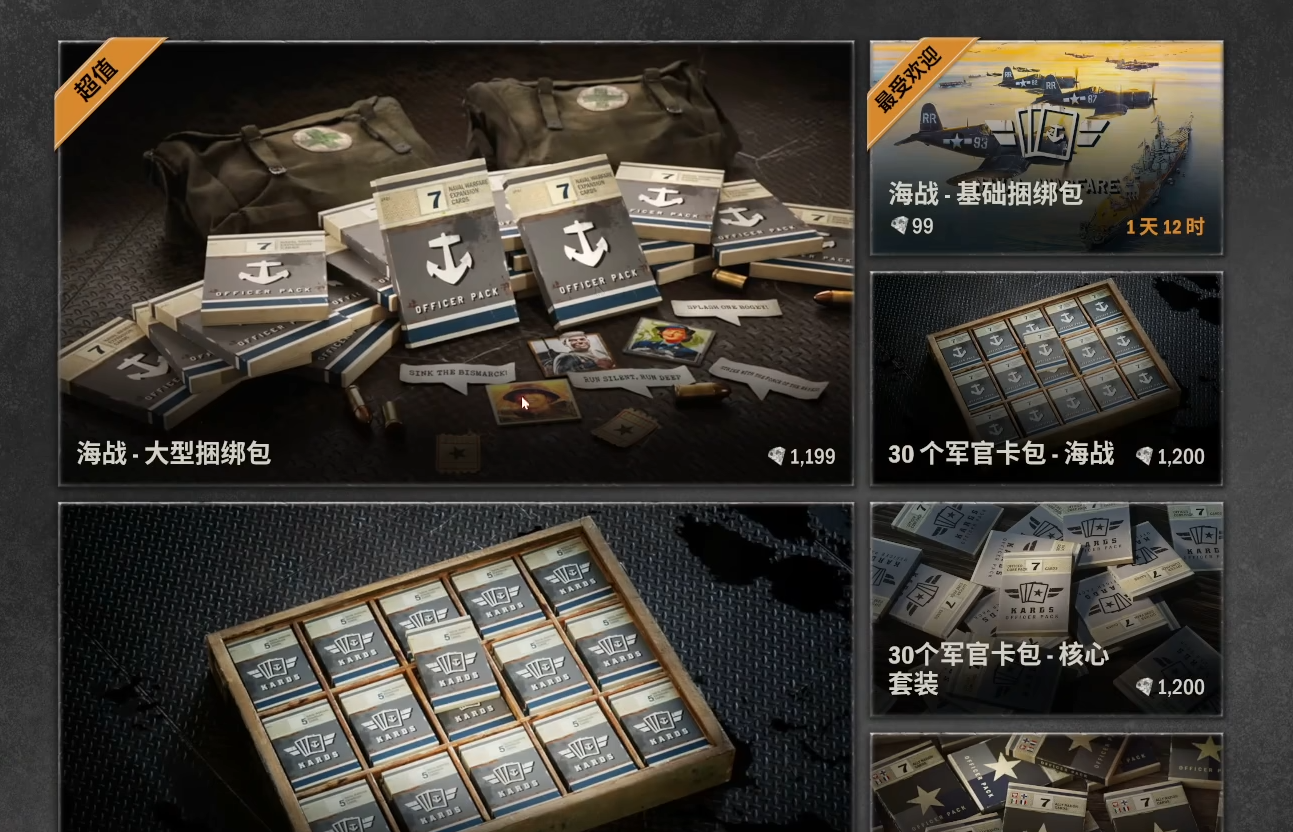
III. Balance Adjustments and Card Reworks
1. Key Card Nerfs
Air Superiority: Buff reduced from +1/+2 to +1/+1, limiting air superiority pressure.
Honor and Loyalty: Only allows shuffling friendly units, preventing opponents from gaining card advantage.
Somua S35: Action cost increased by +1k, slowing down fast-paced strategies.
2. Returning Card Buffs
U-16: Reworked into a 2-cost command, allowing unit retreat and drawing a naval card, fitting the new mechanics.
Blockade: Effect changed to 5-cost AOE damage, linked to top-of-deck naval card judgment.
3. Archetype-Specific Adjustments
The core card Hakko Ichiu of the suicide deck is now conditionally triggered (requires losing 2 command point slots to gain 4 points), limiting OTK burst potential.
Additionally, a naval experience sharing event (June 20-27) has been launched, during which players can participate in a lottery by sharing version reviews, with a chance to win a 50 yuan JD card and a naval officer card pack. Don't forget to use biubiu Accelerator to make your internet speed faster and the test smoother. Now enter the code 【biubiu no disconnection】, and immediately unlock 3 days of VIP, plus a 24-hour newcomer gift for first-time registrants. These dual benefits add up to a super long 96-hour experience. This is equivalent to getting 4 days of full platform privileges for free, letting you have a blast.
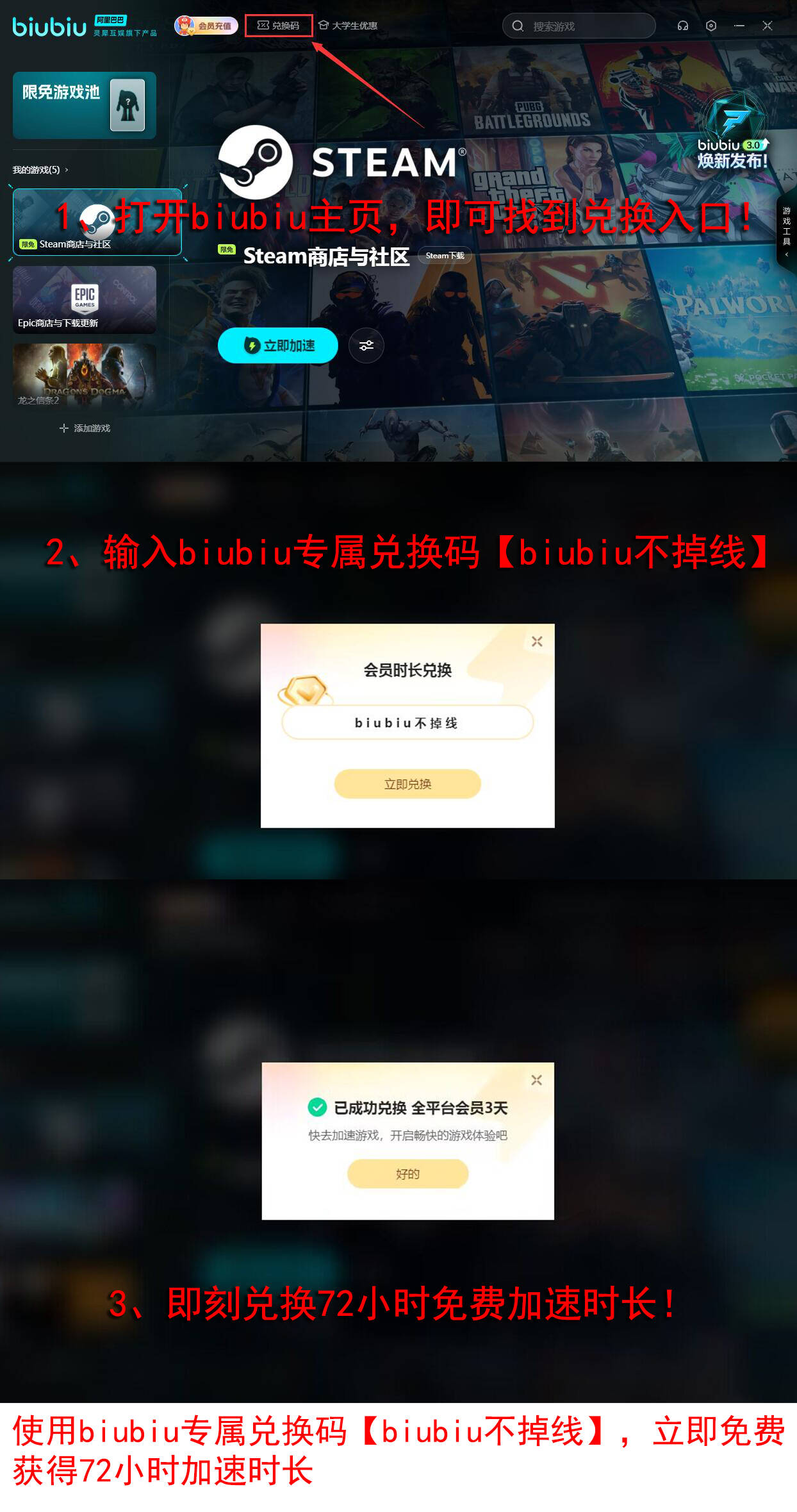
In summary, this update enhances strategic dimensions through naval-themed expansions and mechanism innovations (such as conversion and dynamic values), but some new cards' strength imbalances (like the two-cost removal card "Continuous Barrage" replacing the old removal system) have sparked the "Magic Duel 3.0" controversy. The card pool rotation and achievement system extend the depth of collection, while UI and profile optimizations enhance immersion, collectively pushing the game towards a sustainable content cycle.
What are the gameplay strategies for Ultraman Transcendental Hero cards? Guide to playing Ultraman Transcendental Hero card game
As a mobile game themed around Ultraman, its appearance has attracted the attention of many friends. In this article, the editor mainly aims to introduce the card gameplay of Ultraman Hyper Space Heroes to players. If you have been thinking about this recently and hope to get a good gaming experience, then it's crucial to understand the related card gameplay ideas in advance. Let's take a look if you are interested.
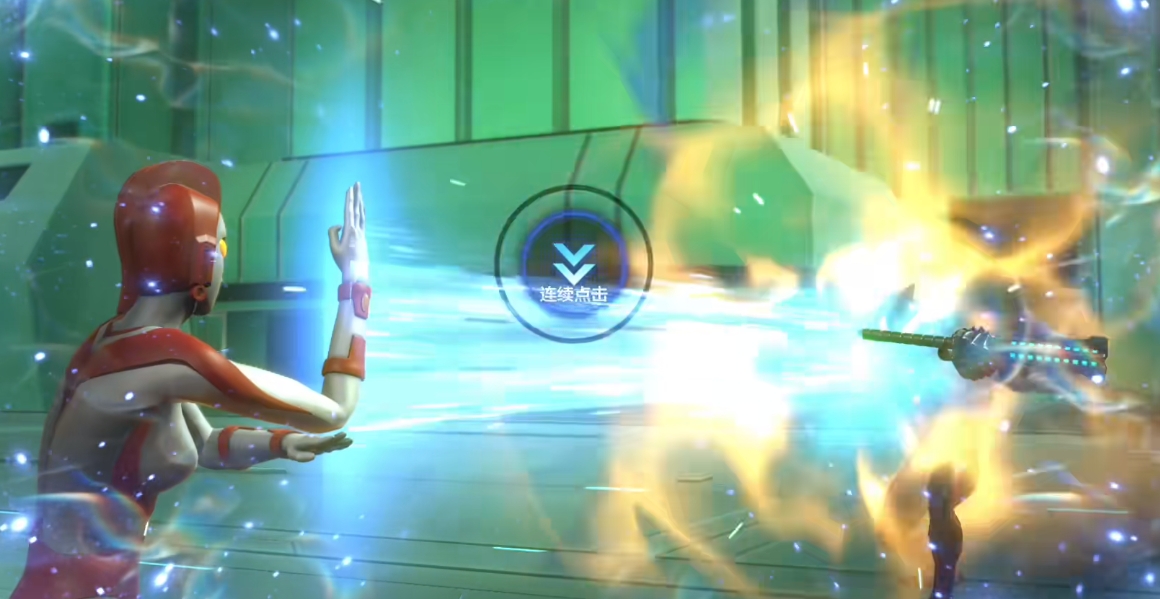
The game features various types of Ultraman cards, such as offensive, defensive, and support types, each with different effects. Players can choose based on their combat needs and strategies.
If you want to collect cards, you can do so through drawing cards, completing tasks, and actively participating in various activities. By continuously expanding your card library and increasing the diversity of card combinations, you can enhance your combat capabilities. It is important for players to determine their core offensive, defensive, and support cards, like Zero and Tiga, and consider prioritizing resources to upgrade these cards' levels, skills, and attributes. This will make them perform more powerfully in battles.
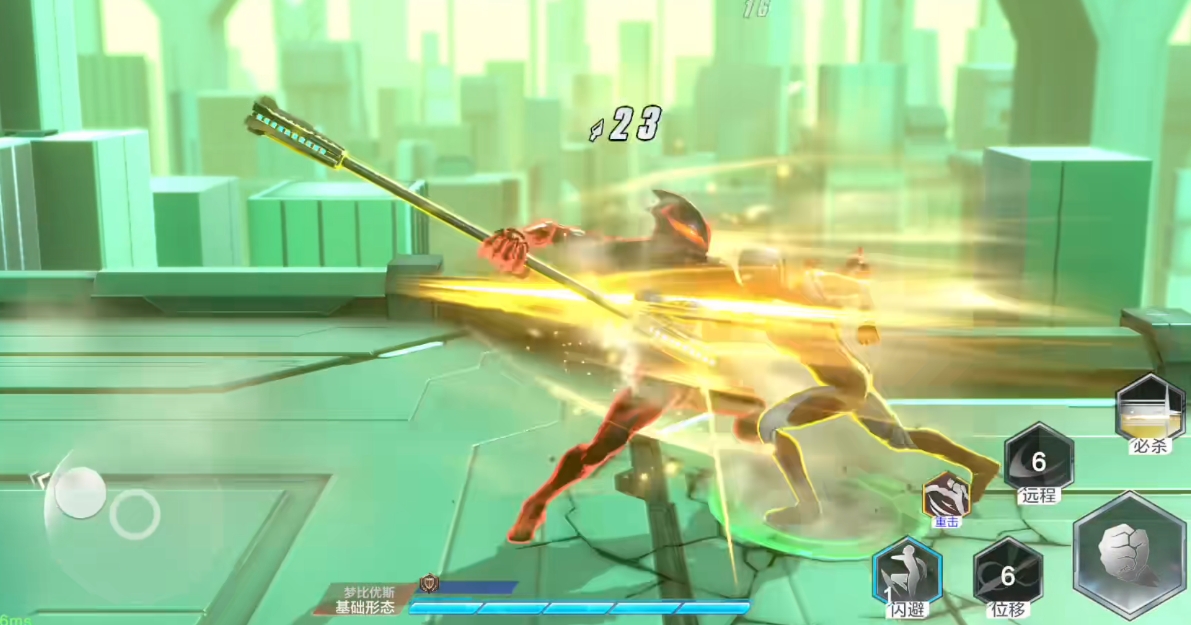
In fact, when engaging in combat, it's essential to understand the skill characteristics, release conditions, and corresponding effects of each Ultraman card. For example, Zero's Beam Ray is one of the powerful skills. By using these skills reasonably and timing their release well, you can quickly achieve the best combat effect.
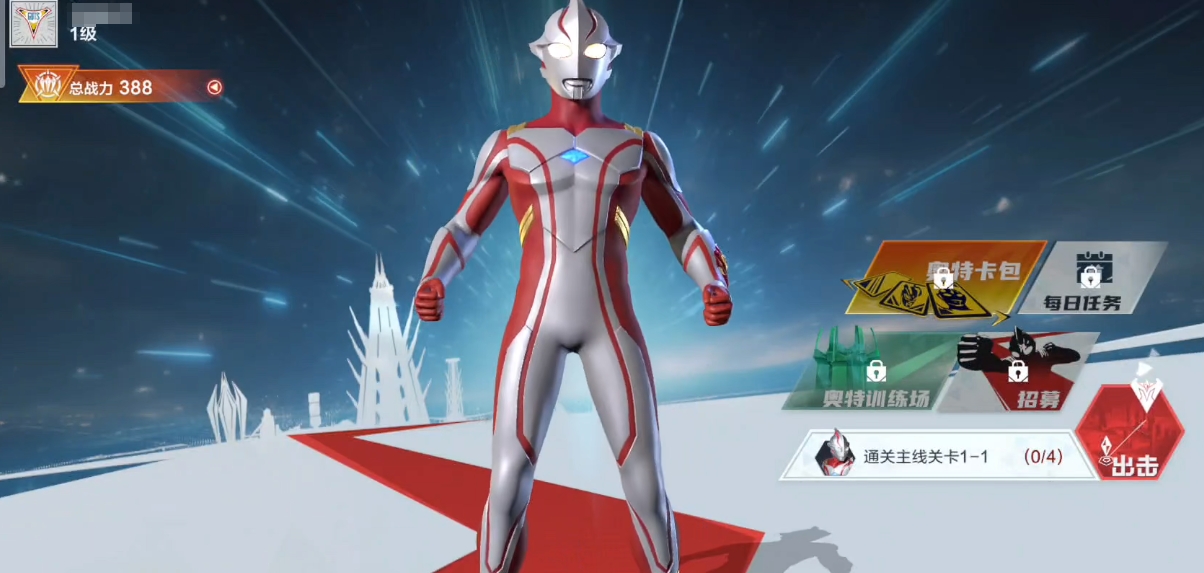
During actual matches, you also need to formulate combat strategies based on the opponent's card lineup and the actual battle scenario. For instance, when facing an enemy with strong defense, you can first use control or weakening skills, then follow up with offensive skills for better results. In PvP battles, it's important to observe the opponent's skill release actions and flexibly use dodging, combos, and form switching to suppress the opponent.
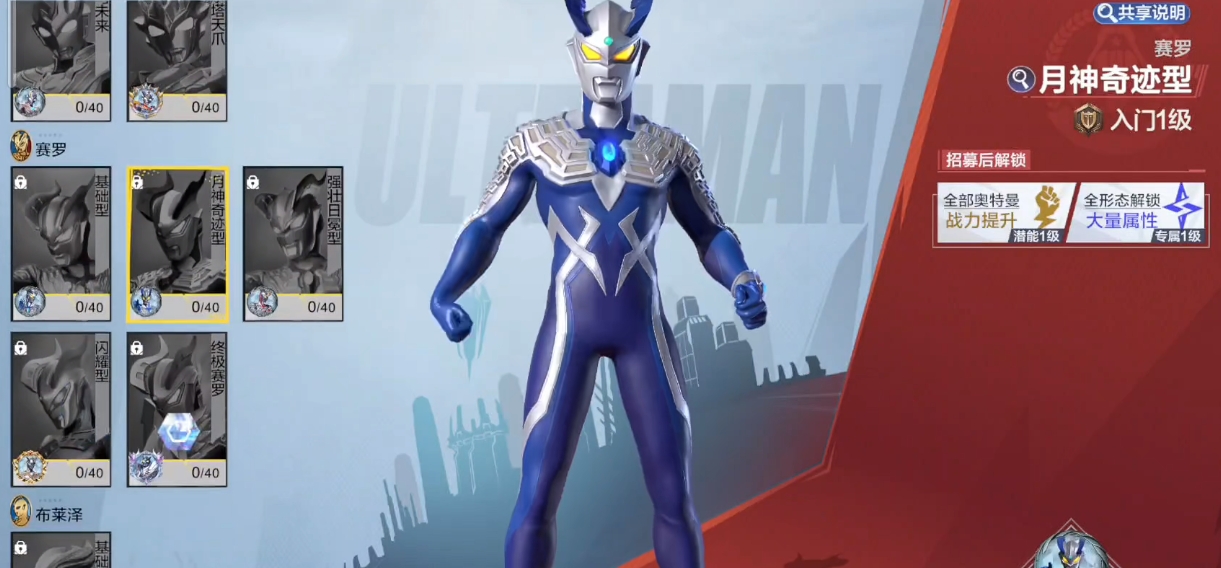
Well, that's all the explanation for the card gameplay of Ultraman Hyper Space Heroes. The gameplay elements it brings are very rich, offering numerous exciting challenges, which can greatly improve the actual gaming experience. If you plan to try this out soon, don't hesitate to give it a go. I hope this helps everyone.
What are the Carabique biochemical cards? Introduction to Carabique biochemical cards
In Karabijiu, at the beginning of a game, you can obtain cards, which are called biochemical cards. By equipping these cards, new abilities can be given to the characters, making the choice of cards very important. To help everyone choose the right cards, the following will list and introduce the biochemical cards in Karabijiu. After reading the following, you will understand these cards.

The first card to show you is called Hourglass Bullet, which has the effect of increasing the damage multiplier of the main weapon. The first bullet from the main weapon can increase the damage to 160%. This is the first card. The second card is called Economic Round, which provides experience points.
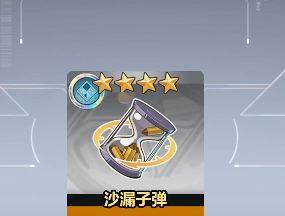
For the next six rounds, 25 experience points will be given each round. This is the second card. Next is the third card, Corrosive Claw, which has the effect of dealing an additional 72% health damage after a normal attack causes damage. The fourth card is Golden Toad Shedding Shell, which has the effect of becoming invisible for two seconds after being attacked.
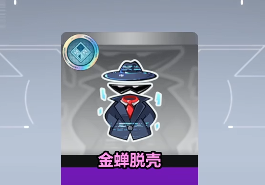
The fifth card is Victory or Death, which has the effect of potentially increasing the level by 1-7 or turning into an energy crystal. The sixth card is Tempered Paper, which increases movement speed by 30% and, under certain conditions, gives an additional 35% damage reduction. The seventh card is Retreat as the Best Option, which increases movement speed for 2 seconds when attacked by an energy source.
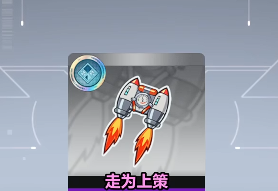
The eighth card is Berserk Rage, which increases attack speed by 54%. The last card is Malicious Acquisition, which grants 12% of the current level's experience upon killing an enemy.
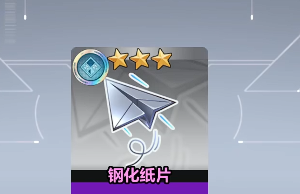
The above is all the content about what biochemical cards are available in Karabijiu. After reading the introduction above, I believe everyone now understands what biochemical cards are in the game. Once you know what cards are available, you can go ahead and use them.
Introduction to the Card Turn-Based Gameplay of Strange Tales of the Three Kingdoms How to Play Strange Tales of the Three Kingdoms
After entering the world of The Unusual Chronicles of the Three Kingdoms, you will participate in those historically famous battles alongside renowned historical generals. As a game that primarily features card-based turn combat, to quickly get started, we need to understand the card turn-based gameplay of The Unusual Chronicles of the Three Kingdoms. Below, I will share the specific gameplay with everyone.
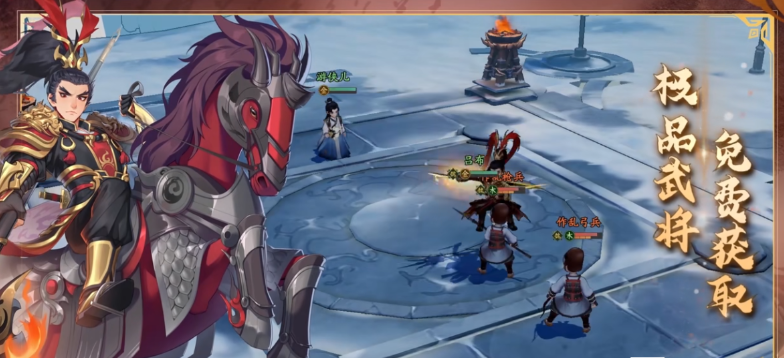
The latest download reservation address for "The Unusual Chronicles of the Three Kingdoms":
》》》》》#The Unusual Chronicles of the Three Kingdoms#《《《《《
To successfully win in card turn-based combat, players need to gain an in-depth understanding from multiple aspects such as recruiting generals, leveling up, skill enhancement, troop combination, and strategy customization.
1. Recruiting Generals
In The Unusual Chronicles of the Three Kingdoms, there are 4 channels for recruiting generals. Most generals can be obtained through drawing cards. To obtain more powerful generals, it is recommended to draw 10 times at once to increase the probability of obtaining them. Participating in events can also provide additional chances to draw cards.
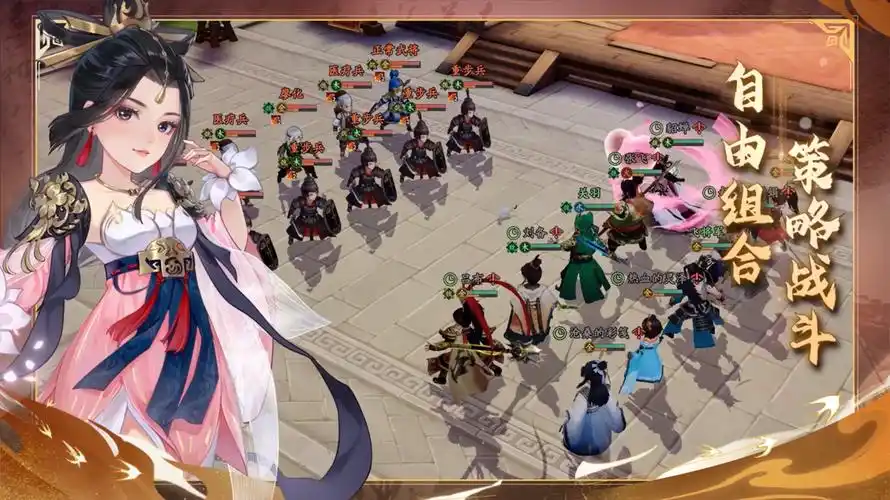
2. Leveling Up
In The Unusual Chronicles of the Three Kingdoms, while we are increasing our own level, we also need to level up our generals. It's important to note that the general's level should not exceed the main character's level.
3. Skill Enhancement
After increasing the general's level, don't forget to enhance the general and increase the power of their skills. Both of these methods can improve the general. Enhancing a general involves improving their ability to withstand damage, attack power, strength, and aggression attributes, etc. To upgrade skills, simply advance the skill tier, which unlocks passive skills for use.
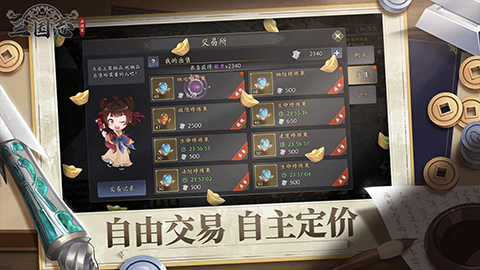
4. Strategic System
In a turn-based card game, the strategic system is generally about cost. We need to choose 3 different generals to fight together. The selection of generals for battle requires a reasonable strategy, such as adjusting the position of the generals or finding the right timing to use skills.
5. Troop Combination
Since the enemy troops we encounter on the battlefield are not all the same, when combining troops, we also need to choose the most suitable ones based on the battlefield situation, striving to maximize our advantages.
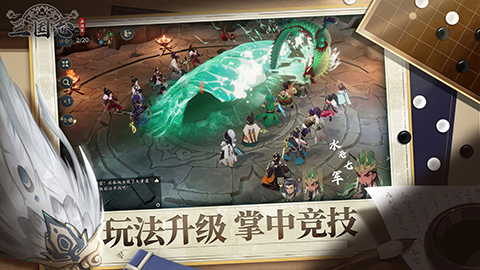
The above is the complete guide to the card turn-based gameplay of The Unusual Chronicles of the Three Kingdoms. If partners want to firmly grasp the advantage in each round of combat in the game, they need to have a detailed understanding of this content. Only by thoroughly studying the game's mechanics can we always maintain the upper hand on the battlefield.
Introduction to the Wizard Beneath the Cloud Sea How is the Wizard Beneath the Cloud Sea
Below the sea of clouds on the battlefield, there are always some mysterious figures lurking in the shadows, silently casting curses and dragging enemies into endless suffering. These figures are the wizards. Today, the editor brings you an introduction to the wizards below the sea of clouds. As the name suggests, wizards master terrifying dark magic. Standing at the back of the team, they are the masterminds behind the scenes, often weaving a web of death with that complex and mysterious magic, slowly devouring the enemy.

As a wizard, your task is not simple. You do not have strong defenses, nor the ability to dodge enemy attacks, so most of the time you need to stay carefully at the back of the team. You don't need to charge into battle like a warrior, nor do you need to be as adept as an assassin in the midst of enemies. The charm of a wizard lies in being a silent killer; your spells may not immediately knock down enemies, but they will cause almost unbearable pain, until the final moment when your curse takes their lives away.

A wizard's skills mainly revolve around curses and death. You can summon the undead to fight for you, control elements such as fire, plague, and souls, dragging enemies into the abyss. With each spell cast, the enemy's pain increases, and your curse quietly ferments until it erupts into lethal damage. Although wizards do not have powerful area-of-effect attack skills, you can rely on strong single-target sustained damage to gradually weaken the enemy's combat power. Imagine, while the enemy is busy dealing with other threats on the battlefield, they cannot escape your dark magic, slowly feeling the invisible hands of death gripping their necks tightly.
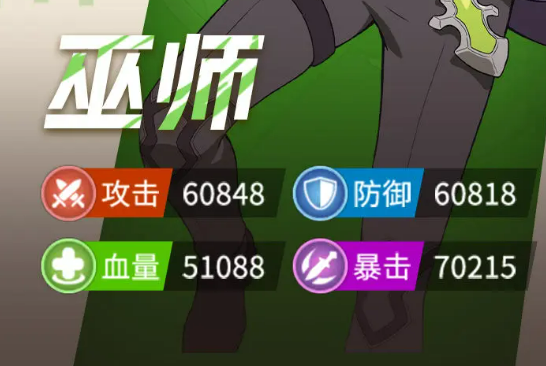
However, wizards are not without flaws. Since you mainly rely on spells for attacks, you heavily depend on the charging and control of magic. Before you run out of mana, enemies often won't fall easily, and this process usually requires great patience and precise skill casting. You cannot destroy enemies with a single burst like other DPS classes; all the pain needs to be accumulated through continuous casting and cursing. In addition, your survival ability is not outstanding. Once the enemy gets close, your fragility might put you in immediate danger, and you must rely on the protection of teammates to survive.
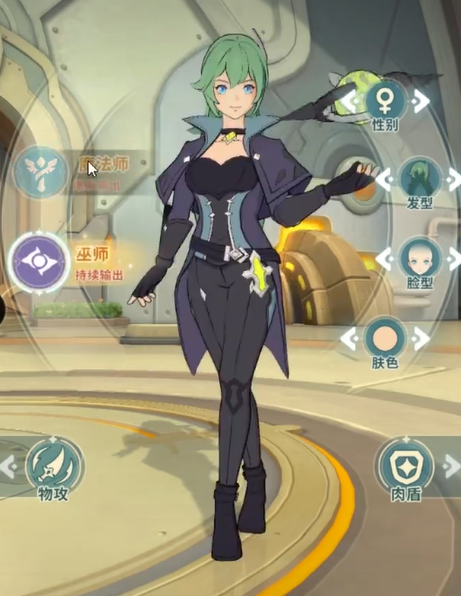
It is recommended to form a team with high-DPS roles like warriors and assassins. Warriors can draw the enemy's attention, assassins can quickly eliminate threats near the enemy, and you can launch your slow but deadly dark magic under their cover. Your sustained damage will provide great support to your teammates, and you just need to quietly observe, waiting for the enemy's health to be gradually worn down.
The above is the content of the introduction to the wizards below the sea of clouds. Wizards are not a role that seeks quick results. You are not the type who can turn the tide of battle with one or two moves, but more of a sustained output role. You are like a cheetah in the shadows, slowly approaching, silently biting the prey, until finally, the enemy can no longer break free.
Code Name: Kill Li Si How is it? Analysis of the Card Strength for Code Name: Kill Li Si
Li Si can be considered a strategist of great renown and formidable reputation, and it is believed that everyone has a very deep and comprehensive understanding of this character. In the game Code Slaughter, the developers have ingeniously recreated this historical figure, and what Li Si is like in Code Slaughter is something you can learn about next. The editor will explain in detail how to play Li Si in Code Slaughter.
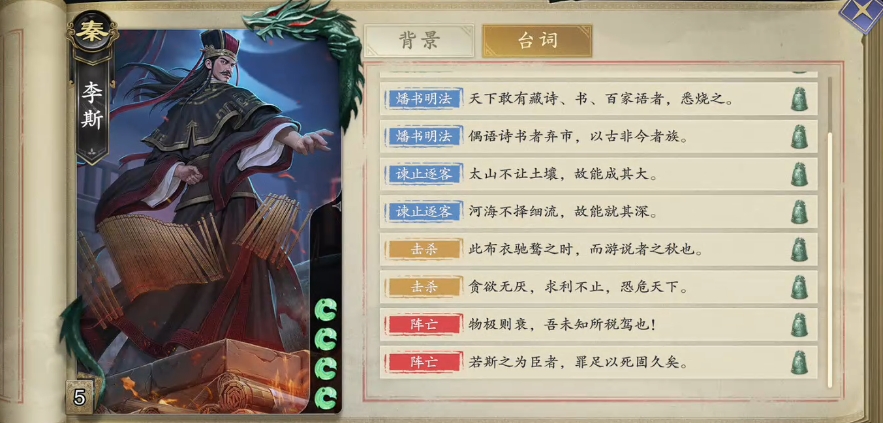
This general card for Li Si has a hand limit of 5 cards and 4 health points. Let's first talk about his skill, Burning Books and Clarifying Laws. After Li Si discards a card, from this moment until the start of his next turn, if another player plays a card with the same name as the one discarded by Li Si, then Li Si can choose to discard 1 card from that player. It should be particularly noted that if the discarded card deals damage to Li Si, Li Si can further play 1 Kill against that player.
For example, if Li Si discards a Dodge, and during another player's turn, that player plays a Dodge, at this point, Li Si can use the Burning Books and Clarifying Laws skill to discard that player's Dodge. If the discarded Dodge, according to the game rules, deals damage to Li Si, then Li Si can immediately play 1 Kill against the player who caused the damage, to counterattack or balance the situation. It is worth noting that the setting for cards with the same name is the same as Han Xin's Ambush on All Sides, meaning that Kills with different attributes are considered to have the same name, which also enriches the possibilities of using this skill in different situations.
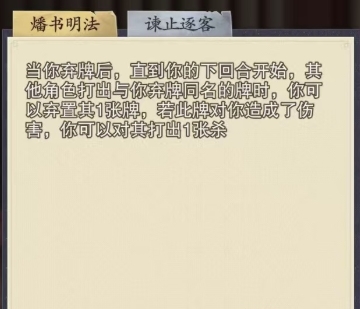
Looking at the skill Remonstrance Against Expelling Guests, when Li Si plays a certain card, from this moment until the start of his next turn, he can obtain cards with the same name as the ones he played, which were discarded by other players. Those originally discarded hand cards will return to his hand. For instance, if Li Si plays a Peach, and during another player's turn, if a player discards a Peach, then Li Si can use the Remonstrance Against Expelling Guests skill to retrieve that discarded Peach, thus increasing his hand resources.
From the perspective of the game mode, this general is clearly more suited for the Eight-Man Army mode. Unfortunately, after trying a few rounds in the Eight-Man Army mode, the editor found that most of the time, Li Si performs like a blank general, not showing the expected strength, and the control feel is also quite strange, giving a sense of having power but unable to exert it.
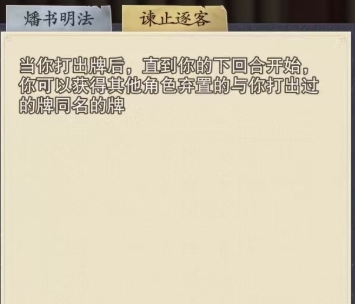
Therefore, everyone is eagerly hoping that the official will add an active skill for Li Si, or appropriately enhance the strength of his existing skills. However, from the overall skill design, Li Si's current skills in the game are somewhat overpowered, meaning that under certain specific circumstances, their effects may appear too strong, potentially affecting the game balance. Moreover, Li Si's position in the game is not fixed; whether as the Lord, Loyalist, Rebel, or Traitor, choosing Li Si is not a bad decision.
But the prerequisite is that you need to have a sufficiently deep understanding and proficient operational skills. If you do not fully understand his skills, there is a high likelihood of making mistakes during the game, directly discarding many hand cards, and falling into a passive situation. In actual combat, Li Si can have 5 hand cards, which is a significant advantage. Having the opportunity to have one or even more extra hand cards than other characters means having more choices and strategies to employ. Combined with his unique and overpowered skill effects, Li Si is definitely a key figure.
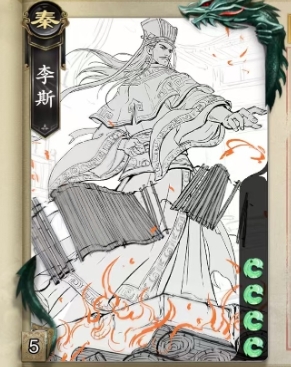
After reading the detailed introduction of Li Si in Code Slaughter provided by the editor, it is believed that everyone now understands how to play Li Si. Currently, obtaining Li Si is not easy. Players need to actively participate in the Punishment of Heaven activity, and through continuous effort, accumulate enough items, and finally, they can successfully exchange for him in the Punishment Store.
Recommend
Strategy
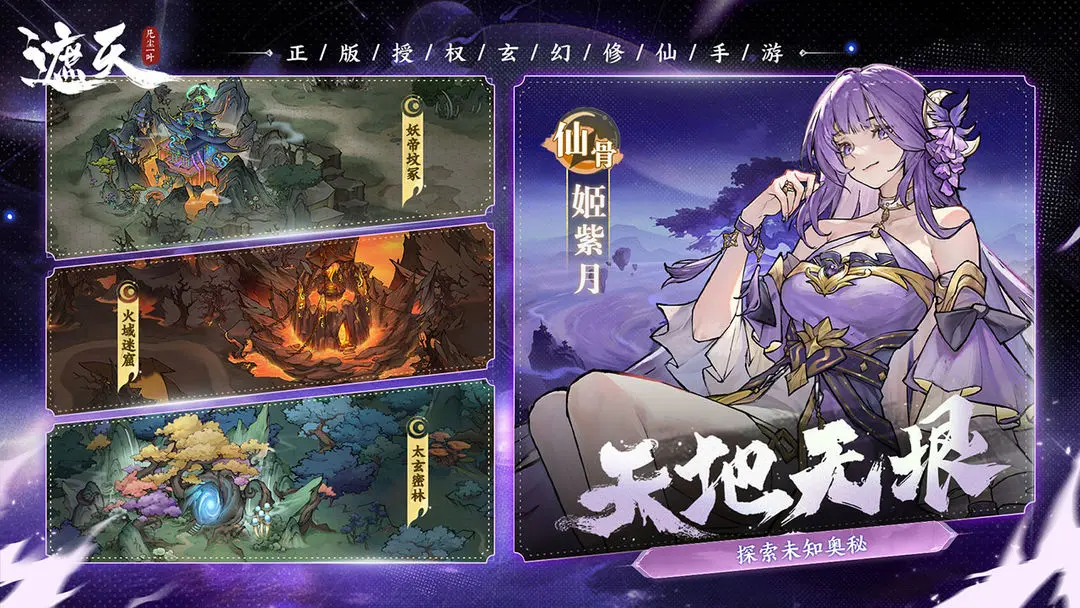
A Guide to Zhetian Fanchen Yiyue Sharing Tips for New Players on How to Play Zhetian Fanchen Yiyue
Introduction to the Public Beta Time of Zhetian Fanchen Yeyi When is the public beta for Zhetian Fanchen Yeyi?
How is Zi Yue from Zhetian Fanchen? Introduction to Zi Yue from Zhetian Fanchen
What are the Luhida Origin redemption codes? Sharing of Luhida Origin mobile game gift codes
Lu Xida Origin Team Recommendations Lu Xida Origin Team Guide
Lu Xida Origin Strategy Sharing: Beginner's Guide to Lu Xida Origin
